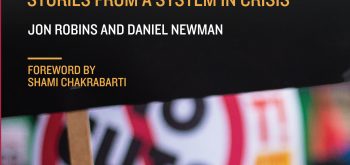A challenge to the government’s revised benefit cap brought by five single parents has been rejected by the Supreme Court. By a 5-2 majority, with Lord Wilson giving the leading judgment, the court found that the rule was tough but not ‘manifestly without foundation’.
Even though the human right to respect for family life was engaged, the court decided that the government’s impact assessment and its belief in better long-term outcomes for children with working parents justified any discrimination that resulted.
Despite rejecting the challenge, all of the judges agreed on the ‘major impact’ that the policy had had on lone parents with young children. Lord Wilson went so far as to say that ‘the extra difficulty, beyond that faced by others subjected to the cap, which confronts such parents in finding not only suitable work but also suitable childcare is plain’.
Under the Welfare Reform and Work Act 2016, families claiming certain types of benefits are subject to a cap of £20,000 per year or £23,000 in London. For those outside of London, this represented an almost 25% reduction in the cap from the original level of £26,000, set in 2013. If parents do not fit within one of the exemptions, they can avoid the cap by working for 16 hours a week.
Government statistics released earlier this year revealed that over seven in ten households affected by the housing benefit cap are single-parent families. More than 75% of those families have a child under five. At the time when the policy was introduced, the government’s own impact assessment showed that around 161,000 more children were likely to be affected by the changes to the cap.
The women who brought the case argued that the cap discriminated unlawfully against single parents, leaving them with a stark choice between making enough money to get by and looking after their young children. Their lawyers described how the cap had cut their housing benefits ‘drastically’.
One of the claimants had five children, one of whom was three years’ old. Her combined benefits for income support, child tax credit and child benefit took her right up to the weekly limit of £384.62. As a result, the housing benefit she was receiving fell to just 50p per week. Her rent was £480 per month.
Addressing the question of whether the revised cap has caused poverty, Lord Wilson maintained that the topic was ‘hotly contested’, before continuing: ‘Since the government cannot sensibly argue that the computation of welfare benefits is intended to provide a family with more than it needs, it follows that a reduction of those benefits will provide it with less than it needs.’
Dissenting alongside Lord Kerr, Lady Hale argued that ‘a fair balance has not been struck between the interests of the community and the interests of the children concerned and their parents.’ She emphasised the lack of evidence that ‘proper account has been taken of the risks of psychological harm to very young children if they are separated from their primary carers, or the multiple risks to the health, development and life chances of children living in poverty in their early years.’
In total, 52,000 households have their housing benefit capped as of February 2019, with 14,000 subject to the Universal Credit cap. Of the single-parent families whose housing benefits are capped, 8,000 report that their youngest child is just two years’ old.
Carla Clarke of Child Poverty Action Group, which represented two of the parents, described the judgment as ‘hugely disappointing’. She continued: ‘There are very real and practical reasons, recognised by the court, as to why such a lone parent struggles to find sufficient work to escape the cap.
‘Yet, while failing to achieve its aim of getting such lone parents into work because of those wider obstacles they face, the cap, in the words of the court, “push[es] a family well below the poverty line.” We continue to believe that the cap is structurally flawed and that pushing families who can’t work deeper into poverty is totally unacceptable.’







